- Home
- Parnell Hall
SW02 - The Anonymous Client Page 7
SW02 - The Anonymous Client Read online
Page 7
“What did they find?”
“Nothing.”
“But they took the sugar bowl?”
“Yes.”
“Was it right where you left it?”
“It must have been.”
“Don’t you know?”
“Well, not really. I was out on the terrace. They brought out the sugar bowl and asked me if it was the one I’d put on the tray for my father.”
“What did you tell them?”
“I told them it was.”
“Did they ask you questions?”
“Yes.”
“About the same questions I asked?”
“Yes.”
“Who inherits under your father’s will?”
“I don’t know the exact terms of the will. The bulk of the estate goes to me.”
“And your stepsister?”
“A specified sum. I don’t know the exact amount.”
“The police ask you those questions?”
“Yes.”
“It’s a wonder you’re still here.”
Marilyn just looked at him with a dull stare.
“Now then, we have another matter to discuss, and there isn’t much time.”
“You keep saying that. Why isn’t there much time?”
“Because, unless I’m very much mistaken, you’re about to have company.”
“Who?”
“The police.”
Marilyn frowned. “I don’t think so. The police were quite thorough. The officer in charge said he was sure they wouldn’t have to disturb me again.”
“I assume he was polite and sympathetic and courteous?”
“He certainly was. He kept apologizing for the inconvenience he was putting me through.”
“That’s because they didn’t have enough on you to charge you. When they come back tonight you’ll find they’ve changed their tune.”
“And why would the police come back tonight?”
“They’ll want to question you about another matter.”
“What other matter?”
“David C. Bradshaw.”
Marilyn recoiled as if she’d been slapped. For a second sheer surprise contorted her face. Then she controlled herself. “Who?”
“David C. Bradshaw,” Steve repeated.
“I’m afraid I’ve never heard of him.”
“Then you couldn’t know he was dead.”
“What!”
Steve looked at her closely. The shock at his name had been genuine, he was sure of it. But her shock at hearing he was dead—Steve just didn’t know. It could have been real, or she could have been acting.
“Then you couldn’t know he was dead. For your information, Donald Blake, alias David C. Bradshaw, was murdered this evening, sometime between five and six. His apartment had been ransacked. A large carving knife had been stuck in his back.”
Marilyn Harding had gone white as a sheet. “That can’t be true.”
“Why not? You don’t know him.”
Marilyn bit her lip.
“Beginning to place the name now?” Steve said, dryly.
“No. The name means nothing to me.”
Steve shook his head. “It’s no good, Marilyn. You can’t get away with it. You called on Bradshaw Tuesday afternoon. You were shadowed by private detectives. Those detectives have a license to protect. As soon as they find out about the murder, they’ll report to the police. I don’t know how many other visits you made to Bradshaw’s apartment, and I don’t know if you were there today, but if you were it’s ten to one the detectives know it and will so inform the police.
“You see where that leaves you. The cops will figure you poisoned your father—that Bradshaw found out about it and tried to blackmail you—that when you realized that this was only the first bite and you would have to keep on paying forever, you killed him.
“Now then, before the police get here, why don’t you come down to earth and start talking sense?”
For a long moment, Marilyn just stared at him. Steve sat calmly, waiting for her to talk. He knew she would now. He had her boxed in a corner, and there was nothing else she could do.
She didn’t. Instead she got up, walked over to the telephone, and dialed an number.
“Hello,” she said. “Mr. Fitzpatrick? ... This is Marilyn Harding ... I’m sorry to call you at home, but I have a problem ... There’s a lawyer here, a Mr. Steve Winslow ... That’s right. He feels I’m going to be interrogated by the police concerning the murder of a blackmailer named David C. Bradshaw ... No, I haven’t ... That’s what I thought you’d say ... That’s fine. Goodbye.”
Marilyn hung up the phone. “That was my lawyer, Harold Fitzpatrick. He’s on his way over. He lives right up the road. He says I should have nothing to do with you and I should ask you to leave.”
Steve looked at her for a moment. Then he laughed sardonically and shook his head. “Well, that’s just fine. I should have known. Why the devil didn’t you tell me you’d consulted a lawyer?’
“You didn’t ask me.”
“No, I don’t suppose I did. Well, if that don’t beat all.”
Steve got to his feet. “All right. You have the information I wanted you to have. The only ethical thing for me to do at the moment is to wish you a good evening.”
Steve turned to leave just as Phyllis Kemper swept into the room, followed by her husband.
“Marilyn,” Phyllis said. “Why, I didn’t know you had company.”
Marilyn turned, saw them, and Steve saw a momentary flash of panic in her eyes. It’s all too much for her, Steve thought. Her mind’s going to give way.
“Oh. Oh,” she said. “Phyllis. Doug. Oh dear. This is Mr. Winslow. he’s leaving.”
“I should hope so,” Phyllis said. “I thought we left orders to let no one in. No offense,’ she added, with a glance at Steve, “but our family’s had a bit of a shock.”
Steve pounced on the opening. “I know,” he said. “That’s why I’m here. My name is Steve Winslow and I’m an attorney.”
“Oh?”
Up close, Steve revised his initial impression of the Kempers. Phyllis Kemper was a catty woman, yes, but it was a curious mixture of cat and mouse. Underneath the eyebrows that were plucked a little too fine and the lips painted a little too thin, was a rather plain, mousey face. A mouse dressed up as a cat.
But it was a good act. There was an almost feline, predatory quality to her. Steve actually felt uncomfortable under her gaze.
Her husband was the opposite. Douglas Kemper was a broad-faced, open, friendly sort of man. He had a young, puppyish quality about him, which, though necessarily subdued, under the circumstances of the tragedy, was nonetheless there.
In his wife’s presence, though, he seemed to take on a secondary role. As if she were the master. As if she might have had a leash on him.
The cat walking the dog.
“Yes,” Steve said. “But I have no wish to intrude on you at this time, and I really must be going.”
“A lawyer?” Phyllis said. “But we have a lawyer. Did Marilyn consult you, Mr. Winslow?”
“No.”
“Don’t tell me you’re suing us?”
“No, he’s not,” Marilyn interrupted irritably. “And he really had to go. Mr. Fitzpatrick is on his way over, and I’m going to have to talk to him alone.”
“Mr. Fitzpatrick?” Phyllis said. “But he was just here this afternoon.”
“Phyllis,” Douglas Kemper said, “I don’t think Marilyn wants to talk about it.”
Marilyn Harding seemed on the verge of hysteria. “I don’t,” she said. “And I just heard a car in the driveway. That will be Fitzpatrick. I don’t want him to find Mr. Winslow here, so would you please—”
She was interrupted by the entrance of the butler. “Excuse me, Miss Harding,” he said, “but the police are here again and—Oh!”
The butler broke off as Sergeant Stams pushed by him into the room.
“All right,” Stams said. “Wh
ich one is Marilyn Harding?”
Steve Winslow, who had been watching Marilyn’s face, turned to face Stams.
Stams saw him. Blinked. “Winslow!” he said. His usually impassive face broke into a grin. “Well, well, well. Isn’t that interesting. You know, I was hoping to find you here, but I didn’t think you’d be that dumb.”
“Apparently I’m that dumb,” Steve said.
“Apparently you are. So,” Stams said sarcastically. “You didn’t have a client who tipped you off to the murder. Oh no. You didn’t go to the apartment to get any evidence. Not you. Why, you didn’t even know he was dead, did you? And yet, when we follow the clues out here, who do we find but poor, innocent Steve Winslow, closeted with his client. Now isn’t that an interesting coincidence?”
“I’m sorry to disappoint you,” Steve said, “but Miss Harding is not my client. Her attorney is a Mr. Harold Fitzpatrick, who is probably in the car I hear coming up the driveway now. It’s been a wonderful evening, but unless you’d like to have me searched again, I really must be going.”
With that, Steve nodded to the astonished Sergeant, and walked out.
15.
STEVE WINSLOW GLANCED OVER HIS shoulder to make sure Sergeant Stams wasn’t following him, and then hurried through the spacious front hallway, looking for a telephone. He spotted one on a desk near the window and was making for it when a corpulent gentleman in his mid-fifties came bustling through the front door. The man saw Steve and stopped dead. “Who are you?” he demanded.
Steve looked at him. Despite the lateness of the hour, the man had on a custom-tailored three-piece suit. Short-cropped curly white hair framed a chubby face that, when smiling, probably looked as benign as that of a vaudeville comedian. At the moment, however, the cheeks were flushed, the jaw was set, and the eyes were narrowed in a suspicious stare.
Steve smiled. “For that matter, who are you?”
“Is your name Winslow?”
“That’s right.”
For a moment the man stared at him as if he could hardly believe the answer. “Then I demand to know what you’re doing here,” he said. “I told Marilyn to ask you to leave. I consider your failure to do so highly unethical and indicative of sharp practice.”
“I take it you are Mr. Fitzpatrick?”
“That’s right. And I demand an explanation.”
“I see,” Steve said. “You want me to leave, and you want me to explain. I’m afraid the two are mutually exclusive. Would you care to pick one?”
Fitzpatrick’s cheeks grew redder. “I don’t need any smart remarks either. You’re tampering with a client. Do I have to file a complaint with the Grievance Committee or would you like to tell me why?”
“Don’t hand me that shit,” Steve said. “I have a perfect right to talk to anyone I want as long as I’m not soliciting employment. Now if Marilyn wants to tell you what we were talking about, she’s free to do so, but as far as I’m concerned, it’s none of your damn business.
“However, it might interest you to know that Sergeant Stams has just arrived, and he happens to be just as curious as you are about my conference with your client. The fact that he didn’t follow me when I walked out of there indicates that he considered his business with Miss Harding far more pressing. I believe it involves a murder. Now, I wouldn’t presume to advise you, but if I were Marilyn’s attorney, I would have no doubt where my primary duty lay. Now, what was your question again?”
Fitzpatrick glared at Steve Winslow, then hurried into the library.
Steve grabbed the phone and called Mark Taylor. After the second ring, the detective’s voice came on the line.
“Taylor here.”
“Mark, Steve. I got a rush job, and I mean rush.”
“Yeah? What?”
“I want you to get both of the Bradshaw letters and the list of bills and bring them to the corner of 59th Street and Third Avenue. The southeast corner. I’ll meet you there.”
“When?”
“Now.”
“Can’t I send someone? I got a lot of shit coming in.”
“No. I need you. Leave an operative on the phone, grab the stuff, and get out there. And I mean now.”
“I’ll have to—”
“Now, Mark.”
“Right.”
“You’ll probably get there ahead of me. Just wait.”
“O.K.”
“And don’t let anyone know where you’re going.”
“The operative will have to know, so he can relay information.”
“No way. It’s important. You can call and get reports, but no one is to know where you are. Got that?”
“Yeah.”
“O.K. Stop gabbing and get going.”
Steve slammed down the phone, raced out the door, and jumped into the cab. The cabbie made good time back to Manhattan, going through the Queens Midtown Tunnel and up Third Avenue. Steve paid off the cab a couple of blocks away and walked on up Third.
Mark Taylor was waiting on the corner. Steve hurried up to him.
“You got the letters?”
“And the list of bills,” Taylor said, tapping his pocket.
“Good. Give them to me.”
Taylor handed them over. “There you are. Now what?”
Steve looked around and spotted a restaurant down the block.
“See that restaurant? Go inside and get us a table. I’ll be with you in a minute.”
Mark Taylor went inside. Steve waited thirty seconds, then followed him into the lobby. Taylor had already been escorted into the dining room. Steve took out his wallet, walked over to the cashier, and smiled.
The cashier, a young blonde, smiled back. “Can I help you?”
“You certainly can,” Steve said. “I need an envelope and a stamp.”
“I’m terribly sorry. We don’t sell stamps or envelopes.”
“I know you don’t,” Steve said, producing a bill from his wallet. “That’s why I’ll pay you five bucks for them.”
The cashier grinned. “You’re kidding.”
“Not at all.”
The blonde reached down under the counter and pulled out her purse. “Just a sec,” she said. She rummaged through her purse and fished out a postage stamp and a pink, perfumed envelope. “I hope the color doesn’t matter,” she said.
Steve handed her the money. “Under the circumstances,” he said, “it couldn’t be better.”
Steve took the envelope and stamp to a table in the corner of the lobby. He put the list of bills in his wallet. He put the Bradshaw letters in the pink envelope, then stamped and sealed it. He addressed the envelope to himself at his office. He hurried outside, found a mailbox, and dropped the letter in.
Steve heaved a sigh of relief. Well, one down and a lot more to go. And the first was the worst. Mark Taylor. Steve hated what he had to do, but he really had no choice.
Steve returned to the restaurant, where he found Mark Taylor sipping a bourbon at a table for two in the far corner of the dining room.
“O.K., Steve,” he said. “What’s the pitch?”
Steve glanced at the drink.
“I had to order it,” Taylor said. “The waiter was getting impatient, and I didn’t know what to tell him.”
“That’s fine, Mark,” Steve said. “I’ll have one too. It’s been quite an evening.”
“Hasn’t it? All right, Steve. We can talk now. What did you drag me down here for?”
“To have dinner.”
Taylor stared at him. “What?”
“Sure,” Steve said. “You haven’t eaten yet, have you?”
“I had some hamburgers sent up. Look, Steve—”
“But that was a while ago, wasn’t it?”
“Around seven, but—”
“And it’s eleven now. You could eat a nice steak couldn’t you?”
“Sure, but—”
“Then let’s have dinner,” Steve said. He summoned the waiter. “I’ll have a scotch, and this man could probably use ano
ther bourbon. Then we’d like a couple of steaks, medium rare. The kitchen’s still open, isn’t it?”
“Sure,” the waiter said. “We serve food till midnight.”
The waiter wrote down the order and left.
Mark Taylor turned to Steve Winslow. “Steve, please. Don’t do this to me. I don’t know what you’re up to, but you know how I hate to be out of touch with the office. What the hell’s going on?”
Steve took a sip of scotch. “I’m afraid your office isn’t a very safe place for you right now.”
“Why not?”
“You’re going to have visitors.”
“You man cops?”
“Yeah.”
“Oh shit. How do you know?”
Steve shook his head. “I can’t tell you that right now. But the way things are breaking, sooner or later Sergeant Stams is going to come down on you like a ton of bricks. When he does, you’re going to have to answer questions. The less you know, the less you have to tell him.”
“I know too much already.”
Steve shook his head. “No you don’t, Mark. Actually, you know very little. The rest you just infer. Any conclusions you may have drawn are incompetent, irrelevant, and immaterial, and you can’t be forced to testify about them.”
“Testify!” Taylor was alarmed. “Am I going to have to testify?”
“It’s possible,” Steve said. “Which is why it’s important to differentiate between what you know and what you merely surmise. I’m going to tell you what you know.”
Mark Taylor blinked. “Steve. I got a license.”
“Just do what I tell you, and you won’t lose your license,” Steve said. “Now listen. This is what you know: On Tuesday I gave you a list of serial numbers of ten one thousand dollar bills. You traced the bills and discovered that they had been withdrawn from the bank by one David C. Bradshaw. On my instructions, you placed Bradshaw’s apartment under surveillance Tuesday afternoon. Your operatives reported to you that a young woman called on Bradshaw that afternoon. Immediately after her departure, Bradshaw also left the apartment. Your operatives followed both parties. The young woman was eventually followed to her home and identified as Marilyn Harding. Your men reported that Miss Harding was also being followed by operatives from the Miltner Detective Agency. Bradshaw ditched his shadow. Later, I informed you that Bradshaw was in my office. Your shadows picked up Bradshaw when he left my office and followed him home. You lifted fingerprints from my desk and had them traced. You found them to be the prints of one Donald Blake, a convicted felon with a history of arrests for larceny and extortion. On Tuesday evening at around six-thirty, Bradshaw left his apartment, ditched his shadows, and returned to his apartment at around nine-thirty. The following morning you dusted the combination of my office safe for fingerprints and found one that matched the right thumb of David C. Bradshaw. At that point I instructed you to call off your operatives and drop your investigation.”

 Clicker Training
Clicker Training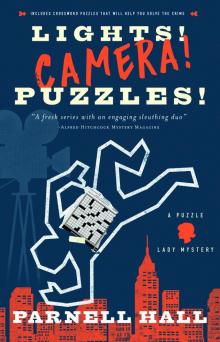 Lights! Camera! Puzzles!
Lights! Camera! Puzzles!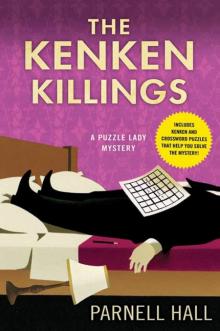 The KenKen Killings
The KenKen Killings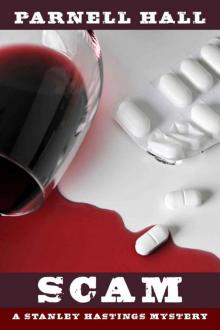 12-Scam
12-Scam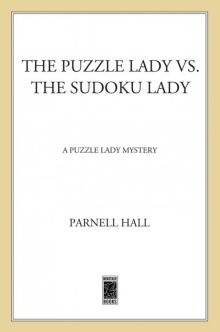 The Puzzle Lady vs. the Sudoku Lady
The Puzzle Lady vs. the Sudoku Lady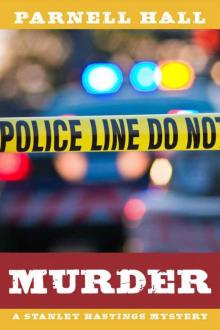 2 Murder
2 Murder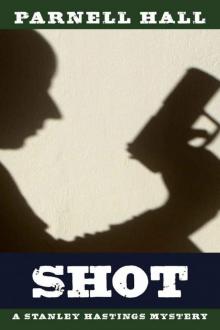 7 Shot
7 Shot You Have the Right to Remain Puzzled
You Have the Right to Remain Puzzled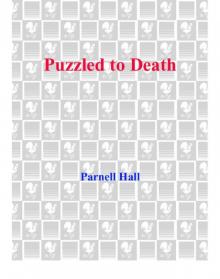 Puzzled to Death
Puzzled to Death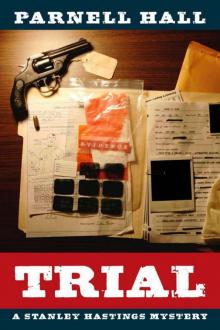 11-Trial
11-Trial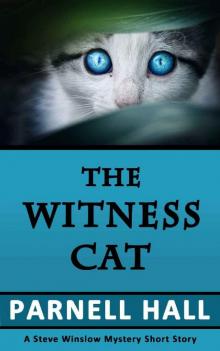 The Witness Cat (Steve Winslow Mystery)
The Witness Cat (Steve Winslow Mystery)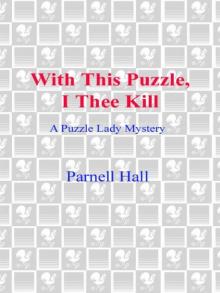 With This Puzzle, I Thee Kill
With This Puzzle, I Thee Kill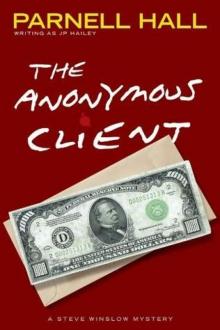 The Anonymous Client sw-2
The Anonymous Client sw-2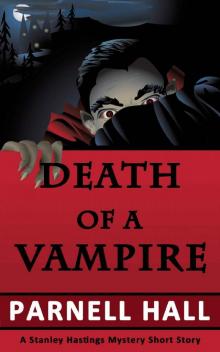 Death of a Vampire (Stanley Hastings Mystery, A Short Story)
Death of a Vampire (Stanley Hastings Mystery, A Short Story)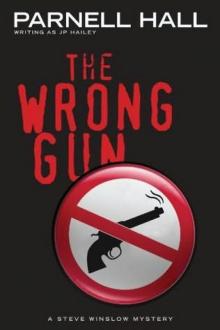 The Wrong Gun sw-5
The Wrong Gun sw-5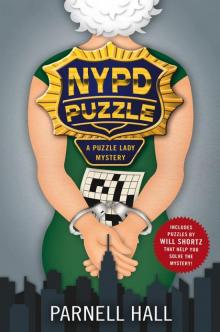 NYPD Puzzle
NYPD Puzzle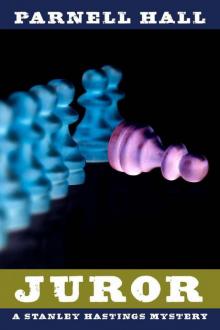 6 Juror
6 Juror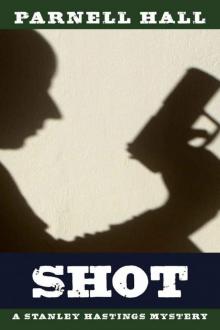 07-Shot
07-Shot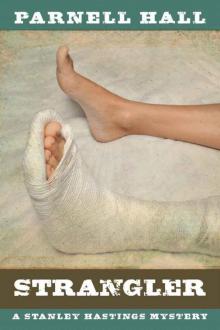 04-Strangler
04-Strangler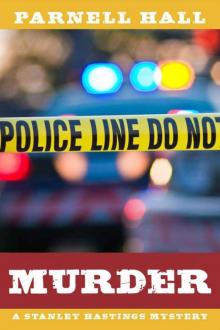 02-Murder
02-Murder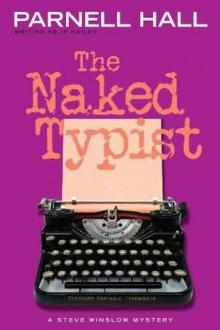 SW04 - The Naked Typist
SW04 - The Naked Typist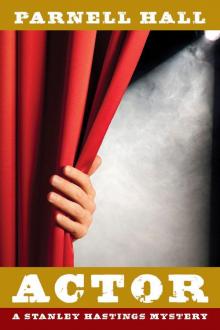 Actor
Actor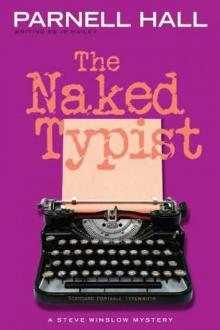 The Naked Typist sw-4
The Naked Typist sw-4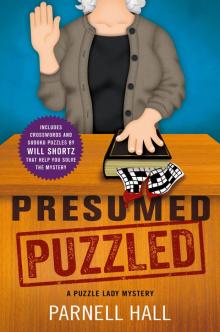 Presumed Puzzled
Presumed Puzzled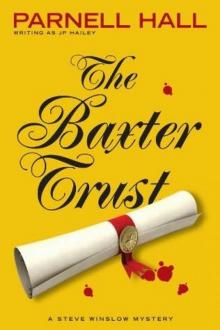 SW01 - The Baxter Trust
SW01 - The Baxter Trust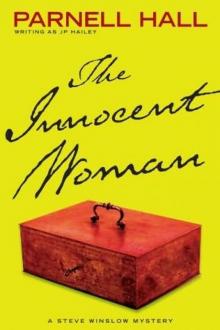 SW06 - The Innocent Woman
SW06 - The Innocent Woman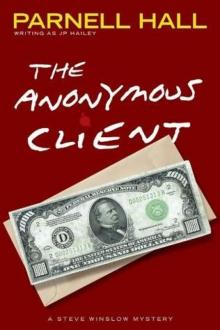 SW02 - The Anonymous Client
SW02 - The Anonymous Client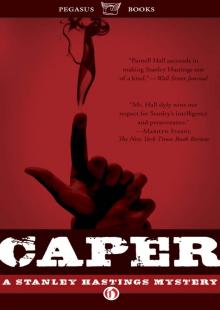 Caper
Caper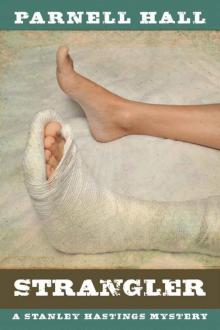 4 Strangler
4 Strangler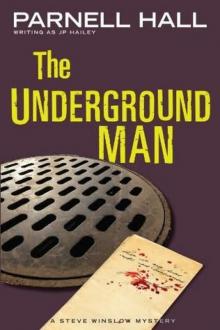 The Underground Man sw-3
The Underground Man sw-3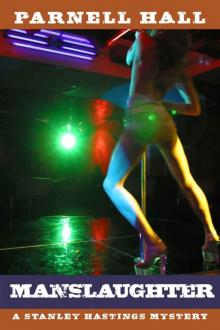 Manslaughter (Stanley Hastings Mystery, #15)
Manslaughter (Stanley Hastings Mystery, #15)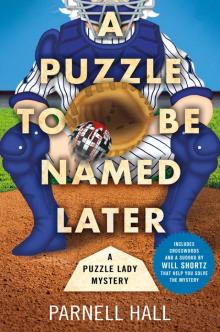 A Puzzle to Be Named Later--A Puzzle Lady Mystery
A Puzzle to Be Named Later--A Puzzle Lady Mystery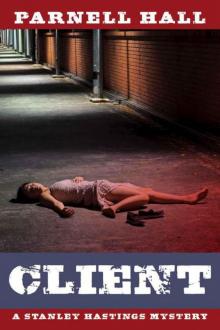 05-Client
05-Client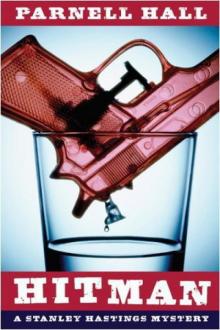 16 Hitman
16 Hitman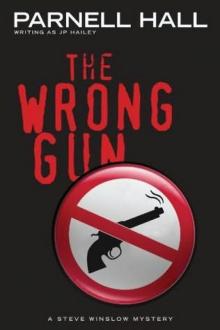 SW05 - The Wrong Gun
SW05 - The Wrong Gun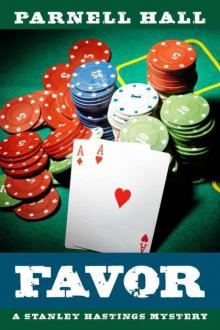 3 Favor
3 Favor Last Puzzle & Testament
Last Puzzle & Testament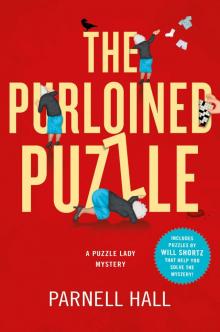 The Purloined Puzzle
The Purloined Puzzle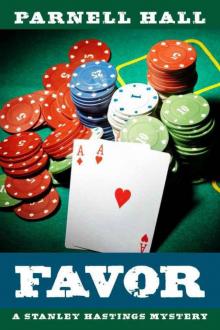 03-Favor
03-Favor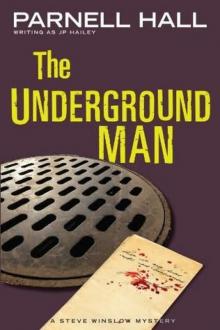 SW03 -The Underground Man
SW03 -The Underground Man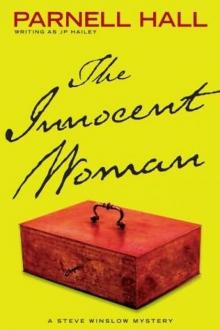 The Innocent Woman sw-6
The Innocent Woman sw-6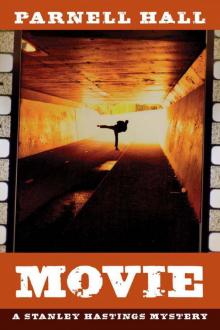 10 Movie
10 Movie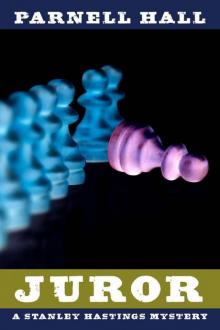 06-Juror
06-Juror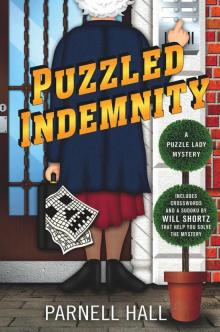 Puzzled Indemnity
Puzzled Indemnity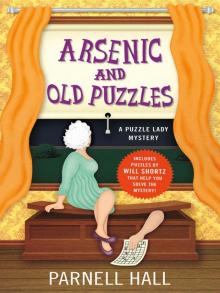 Arsenic and Old Puzzles
Arsenic and Old Puzzles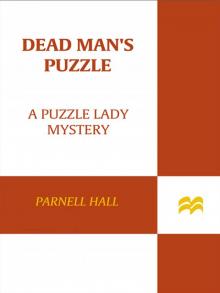 Dead Man's Puzzle
Dead Man's Puzzle Safari
Safari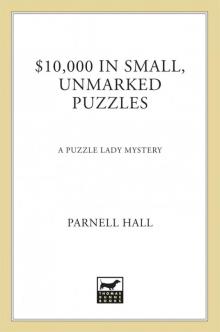 $10,000 in Small, Unmarked Puzzles
$10,000 in Small, Unmarked Puzzles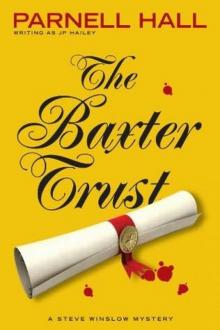 The Baxter Trust sw-1
The Baxter Trust sw-1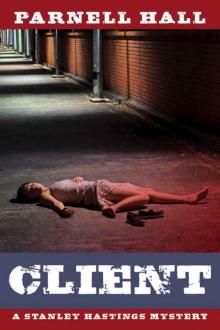 5 Client
5 Client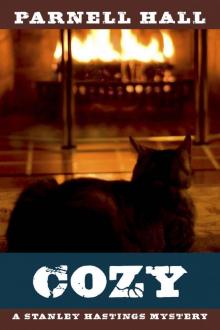 Cozy (Stanley Hastings Mystery, #14)
Cozy (Stanley Hastings Mystery, #14)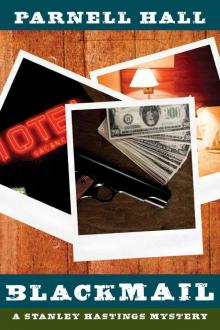 Blackmail
Blackmail A Puzzle in a Pear Tree
A Puzzle in a Pear Tree A Clue for the Puzzle Lady
A Clue for the Puzzle Lady Clicker Training (Stanley Hastings Mystery, A Short Story)
Clicker Training (Stanley Hastings Mystery, A Short Story)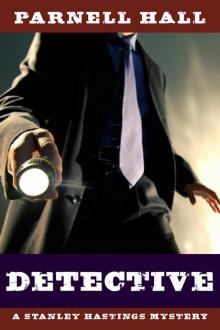 Detective (Stanley Hastings Mystery Book 1)
Detective (Stanley Hastings Mystery Book 1)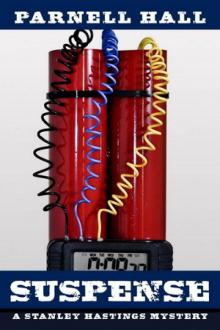 13 Suspense
13 Suspense